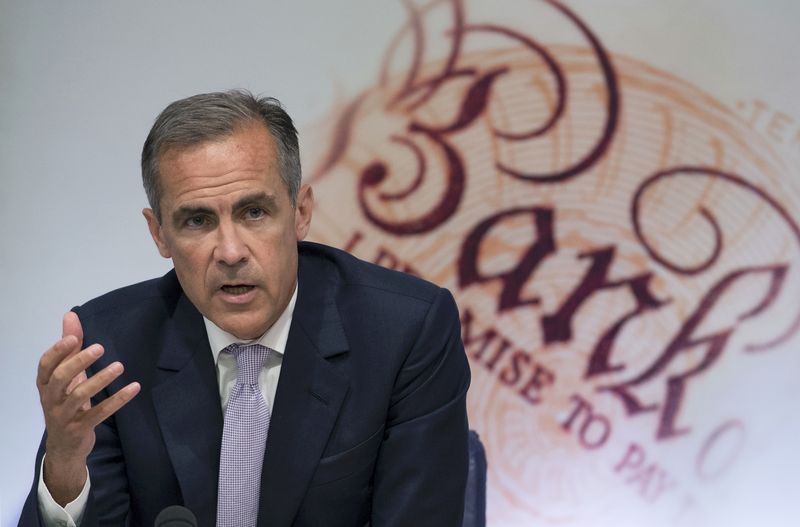Investing.com’s stocks of the week
Investing.com – Bank of England (BoE) governor Mark Carney explained the plans of the central bank to deal with the current period of “heightened uncertainty” stemming from the U.K.’s June 23 referendum decision to leave the European Union (EU), known as a Brexit, in a press conference following Tuesday’s publication of the Financial Stability Report.
Carney began his press conference reminding listeners that the BoE had identified the referendum as the single biggest risk to the British domestic economy and insisted that some of the risks were crystallizing.
While pointing to the drop in the pound, he also noted the U.K.’s current account deficit and stated that there was growing evidence that the referendum had delayed major investment decisions.
Not all of Carney’s message was negative, as he considered that financial markets had responded well to the volatility following the vote.
Carney further explained the BoE’s Financial Policy Committee’s (FPC) decision to reduce U.K. banks’ capital buffers.
He insisted that British banks were in a much better situation than during the financial crisis with £600 billion ($790 billion) of high quality assets, more than four times those held in the Lehman Brothers crisis.
The purpose of reducing the U.K. countercyclical capital buffer rate from 0.5% to 0% of bank’s U.K. exposures was to give “greater flexibility to supply credit to UK households and firms” to the tune of up to £150 billion ($197 billion).
“Those businesses and households who want to seize viable opportunities in the post-Brexit world can be confident that they will be supported by the financial sector,” Carney said.
He also insisted that the reduction in the capital requirements would only be for domestic banks for lending purposes and that the BoE would ensure that the financial institutions did not use that leeway to increase dividends or distributions to shareholders.
Carney concluded his speech by promising that the BoE will do whatever was needed to ensure monetary stability and support the real economy.
“We have a plan; we are putting the main parts in operation and it is working,” he said.
However, Carney admitted that the BoE “cannot fully offset the economic and market volatility.”
“The future potential of the U.K. economy is not the gift of the BoE, but will be driven by others in the private and public sectors,” Carney concluded.
